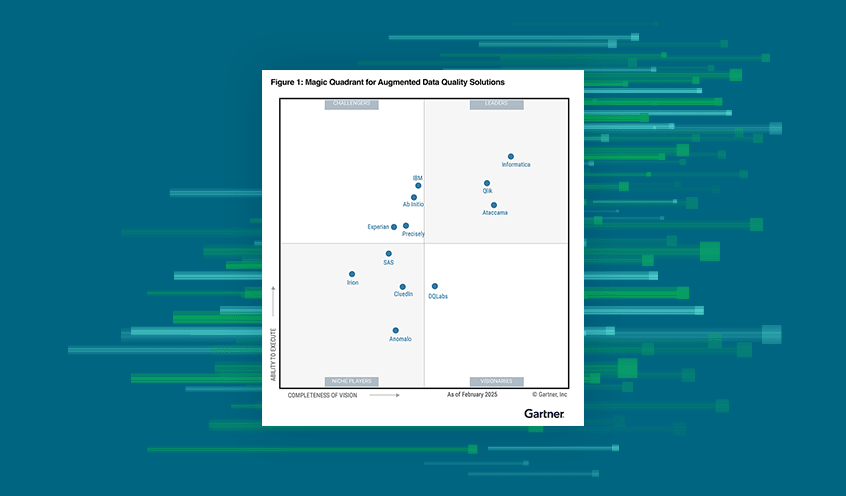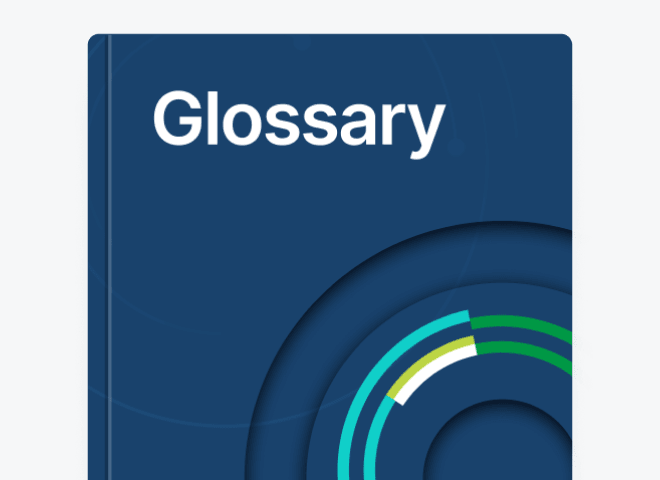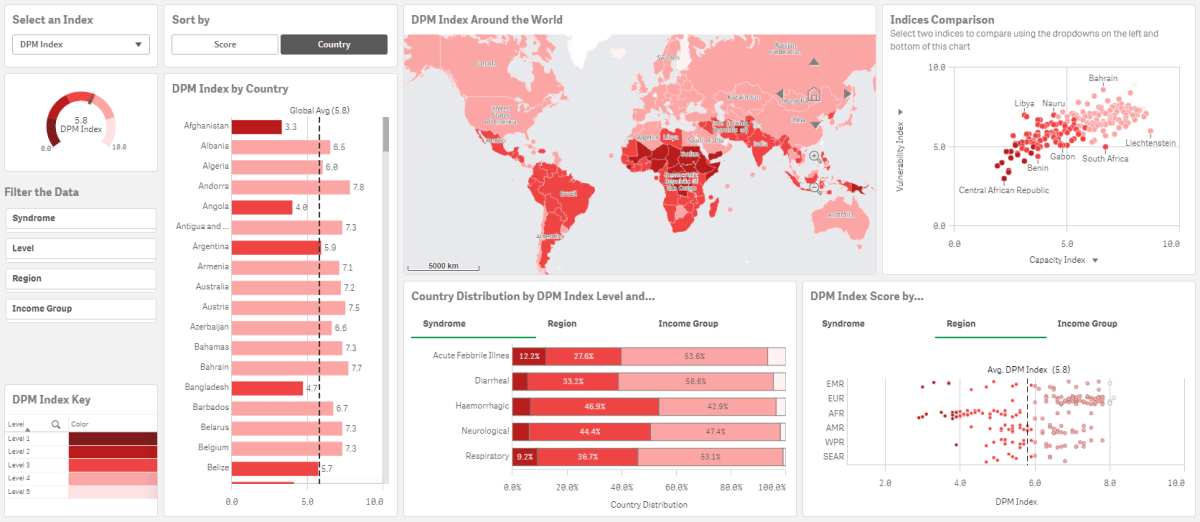Qlik and its NGO partners focus on leveraging data to bring a positive impact to the world. While we are still seeing the effects of the COVID pandemic throughout society, there are tremendous lessons that we can carry forward to be better prepared for the next likely pandemic.
The WHO’s Dynamic Preparedness Metric (DPM) is a composite measure composed of three main dimensions of hazard, vulnerability, and capacity. Through the DPM dashboard, countries will understand: the potential harm they will need to handle based on the severity and probably of an epidemic; how various physical, social, economic, and environmental factors impact susceptibility across all aspects of the community; and the resources they will require to effectively anticipate, mitigate, and respond to a health emergency. Countries will also be able to use the Qlik application to understand their Preparedness Capacity Gap, which proactively identifies system gaps and recommends actions based on priorities informed by WHO Benchmarks for International Health Regulations (IHR 2005).

The Qlik application will continually be up-to-date, as the DPM is dynamically refreshed through the frequent updating of publicly available data that will address five specific acute syndromes (respiratory, diarrheal, neurologic, hemorrhagic, and acute febrile illness). And since the DPM is focused on both a country’s preparedness status and informing national strategic plans and critical areas for prioritized improvements, the DPM interactive dashboard will proactively deliver to countries quarterly estimates of health emergency preparedness with links to suggested actions.
We saw throughout the COVID-19 pandemic the positive impact of having real-time and relevant data when taking action. That data informed action across the entire spectrum of issues, from PPE inventory volumes and needs, hospital and healthcare staff availability, and vaccination status and prioritization based on risk profile. We’re proud to continue our work with WHO to facilitate access by countries to the vital data they need to be prepared and act in order to protect the citizens of the world against the impacts of the next endemic.
Data helps us look around corners and to be better prepared for what may happen next. Qlik is helping the World Health Organization put us all in a better position to manage through any future pandemics.
In this article:
Corporate Responsibility












































